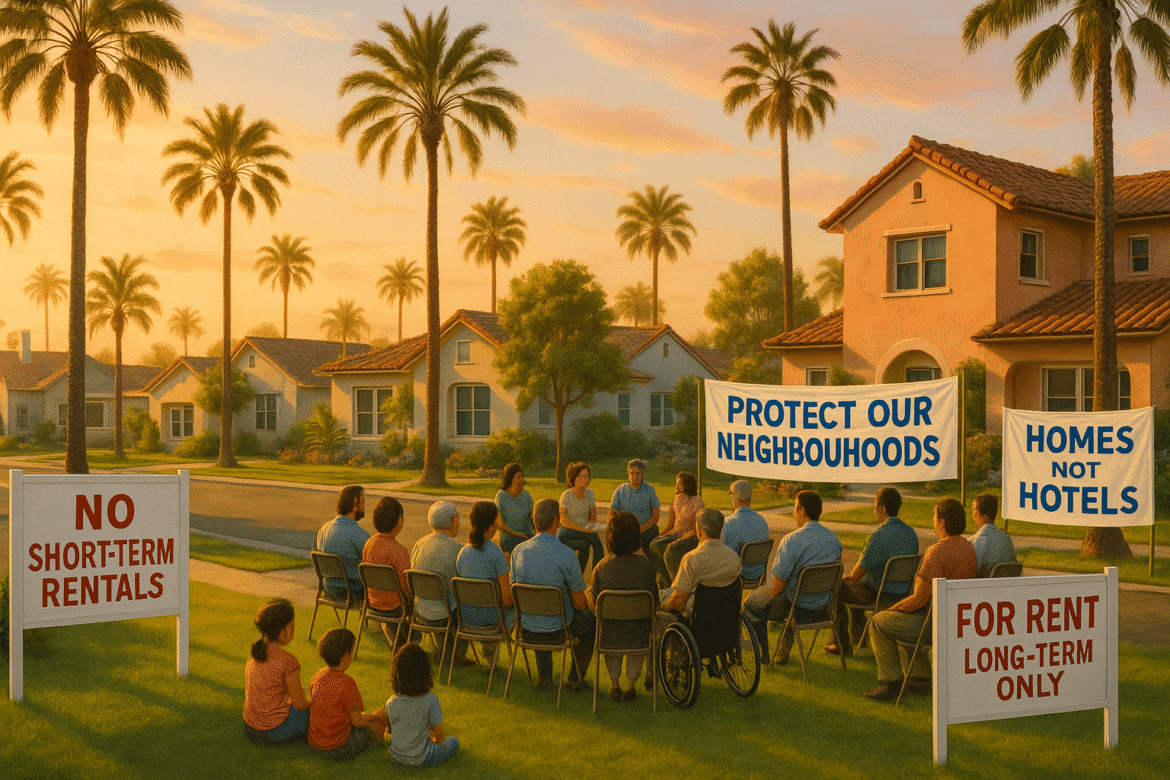San Diego voters took a decisive step in reshaping the city’s housing landscape during the November 5 municipal election by passing Measure R, a ballot initiative designed to restrict short-term vacation rentals. With 58% of the vote in favor, the measure secured a clear majority, highlighting widespread concern over the growing impact of platforms such as Airbnb and Vrbo on local housing availability and neighborhood stability.
Key Provisions of Measure R
Measure R imposes strict regulations on short-term rental operations across San Diego. A primary feature is the cap on whole-home rentals, which are often used exclusively as short-term vacation stays. Under the new rules, only a limited number of permits will be issued for these types of properties, with priority given to primary residences. Additionally, the measure introduces steeper fines and penalties for those who operate rentals without proper authorization or who violate the city’s zoning and occupancy guidelines.
City officials have announced that enforcement of these regulations will begin in January 2025. This timeline allows the city’s Code Enforcement Division to prepare infrastructure and personnel to manage complaints, issue citations, and ensure compliance.
Community Voices and Advocacy
The initiative gained momentum thanks to strong grassroots support from neighborhood associations, housing advocates, and long-time residents who argued that short-term rentals contribute to the city’s affordable housing crisis. They claim that an overabundance of vacation rentals reduces the stock of long-term housing, drives up rental costs, and disrupts the social fabric of residential communities.
Council President Sean Elo-Rivera, a vocal proponent of the measure, stated, “Residents have spoken loudly—they want their neighborhoods back. We will implement this measure swiftly and fairly.” His remarks reflect the sentiment of many who feel that unregulated vacation rentals have turned family neighborhoods into transient hotel zones, undermining community cohesion.
Opposition and Economic Concerns
Not everyone is on board with the new restrictions. Tourism advocates, small property investors, and some homeowners warned that the passage of Measure R could deal a blow to San Diego’s tourism economy. They argue that short-term rentals bring in significant tax revenue and provide flexible income opportunities for property owners. Opponents fear that the regulations may deter visitors, impact local businesses, and reduce lodging options during peak travel seasons.
Despite the backlash, the election results indicate that a majority of voters prioritize residential stability and long-term housing affordability over tourism-driven short-term rental income.
What’s Next?
As the city prepares for the implementation phase, officials will need to balance enforcement with education. Property owners operating short-term rentals will be required to apply for permits under the new rules, and those found in violation may face fines or legal action. The city also plans to create a publicly accessible registry of licensed short-term rentals to ensure transparency.
San Diego’s passage of Measure R places it among a growing number of U.S. cities taking aggressive steps to regulate the short-term rental market in the face of housing shortages and resident pushback. Whether the measure achieves its intended effects remains to be seen, but one thing is clear: San Diegans have made their priorities known at the ballot box.

